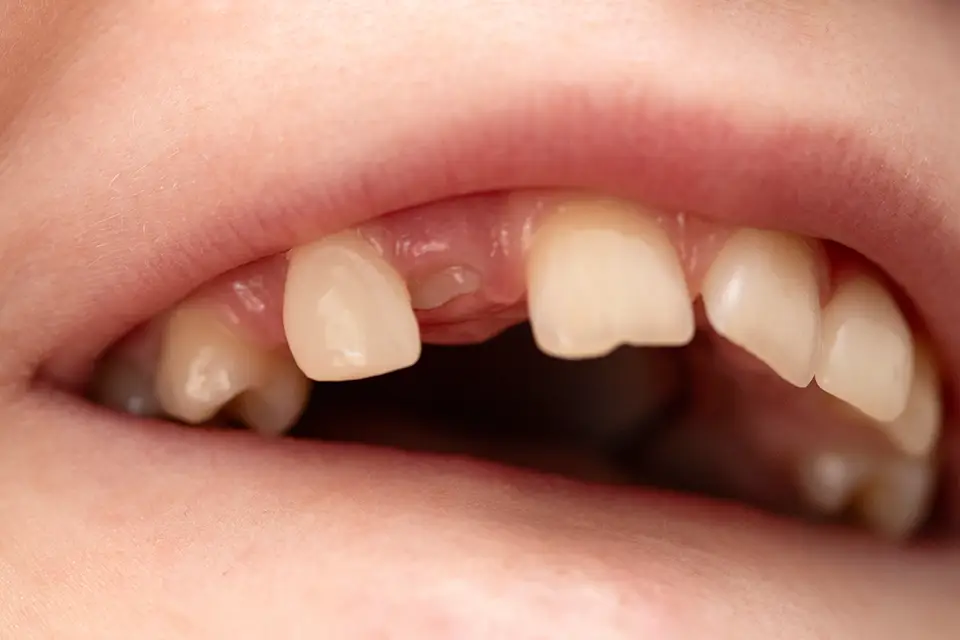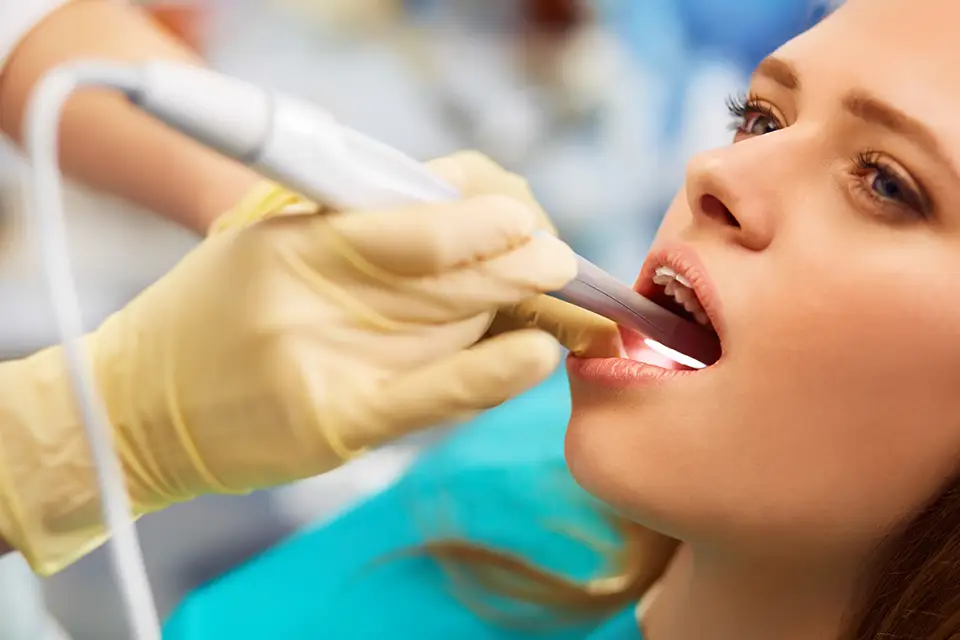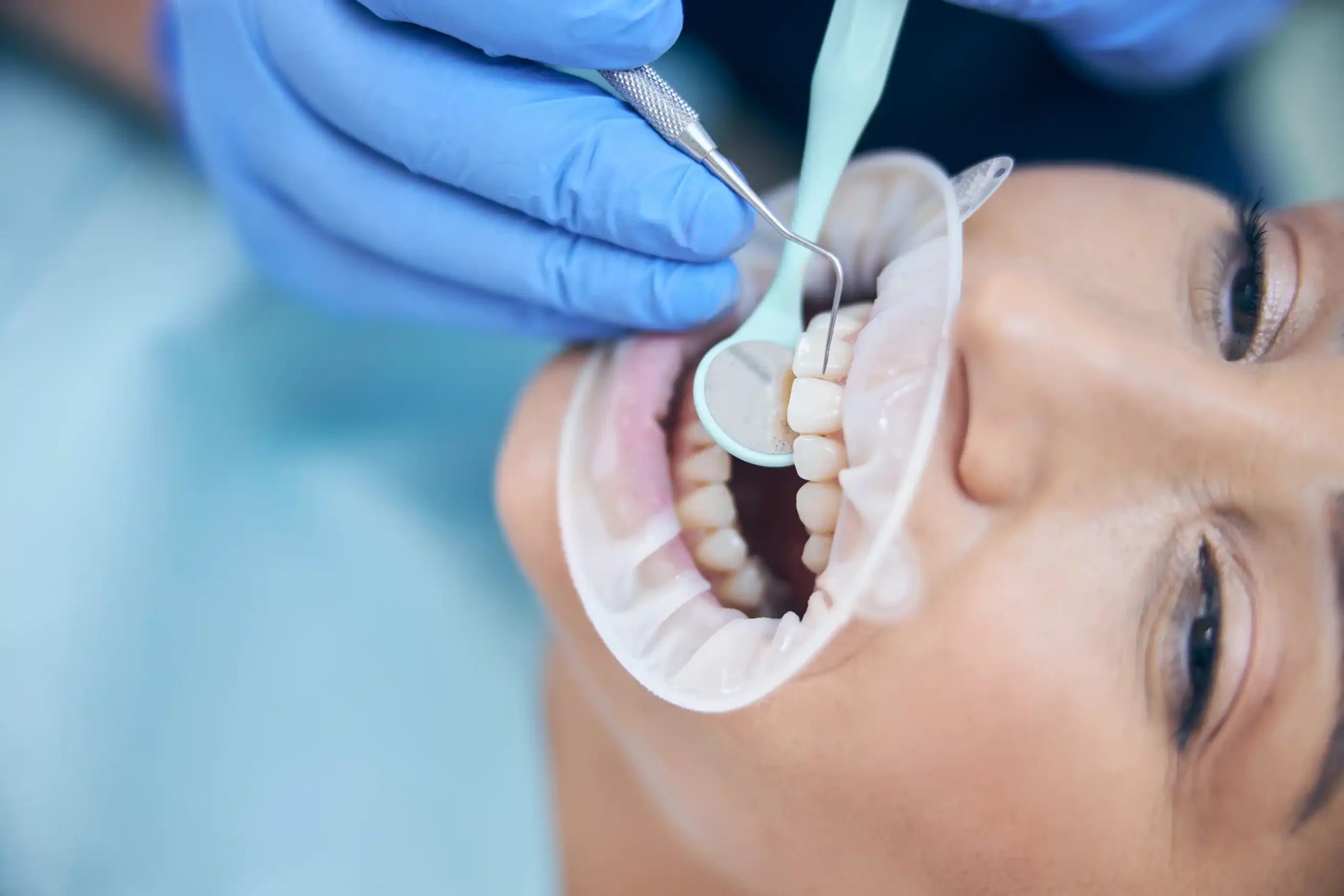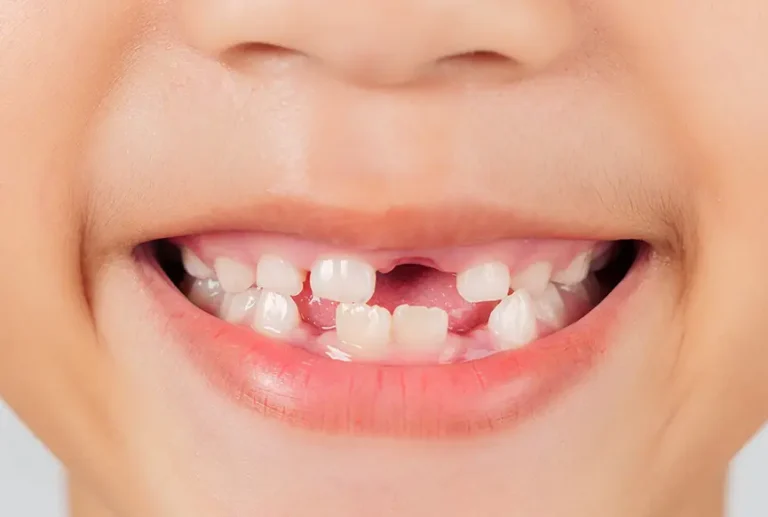Dental plaque is a bacterial coating that accumulates on the surface of the teeth and gums. It develops on our teeth due to oral bacteria interacting with saliva and food particles to produce a biofilm layer.
Dental cavities and gum disease are primarily brought on by plaque, which, if neglected, can result in more severe oral health issues. Plaque is a complex combination of bacteria, food particles, and saliva that adheres to the surface of teeth and gums.
Plaque can solidify and become calculus or tartar if not removed from teeth. As a result, removing it becomes more challenging and may cause inflammation and infection in the gums. Additionally, tartar buildup can cause tooth discoloration and bad breath.
Who May Be More Susceptible to Developing Dental Plaque?
Although everyone gets plaque, you may get more if you:
- Eat a lot of sugary or starchy foods or drinks.
- Have dry mouth due to medications like antidepressants or conditions like Sjögren’s syndrome.
- Have a history of head/neck radiation.
What Causes Dental Plaque?
Oral bacteria are primarily responsible for the development of dental plaque. Hundreds of bacteria live in our mouths and interact with the food we consume and saliva in our mouths to build a sticky film on our teeth.
The bacteria in our mouths feed on carbohydrates and sugars when we eat them, and as a result, acid is created. Dental cavities can develop as a result of this acid eroding tooth enamel. In addition, gum disease can develop over time due to gum inflammation and infection brought on by the bacteria in plaque.
Another factor that contributes to the plaque is poor dental hygiene habits. For example, plaque can develop if we do not routinely brush and floss because food particles and bacteria can build up on the surface of our teeth and gums.
Other factors leading to plaque formation include smoking, medications, and medical problems such as dry mouth.
How Is Dental Plaque Treated?
Professional dental cleanings, often known as prophylaxis, are one method dentists use to remove dental plaque. The process entails a physical examination, scaling to remove plaque and tartar accumulation from teeth and gums, polishing any excess plaque and stains, and sometimes a fluoride treatment.
The dentist may also advise you on improving your oral hygiene habits to avoid plaque formation in the future. In severe cases, you may need a deep cleaning technique called scaling and root planing. You can avoid dental plaque and frequent dental cleanings by maintaining good oral hygiene.
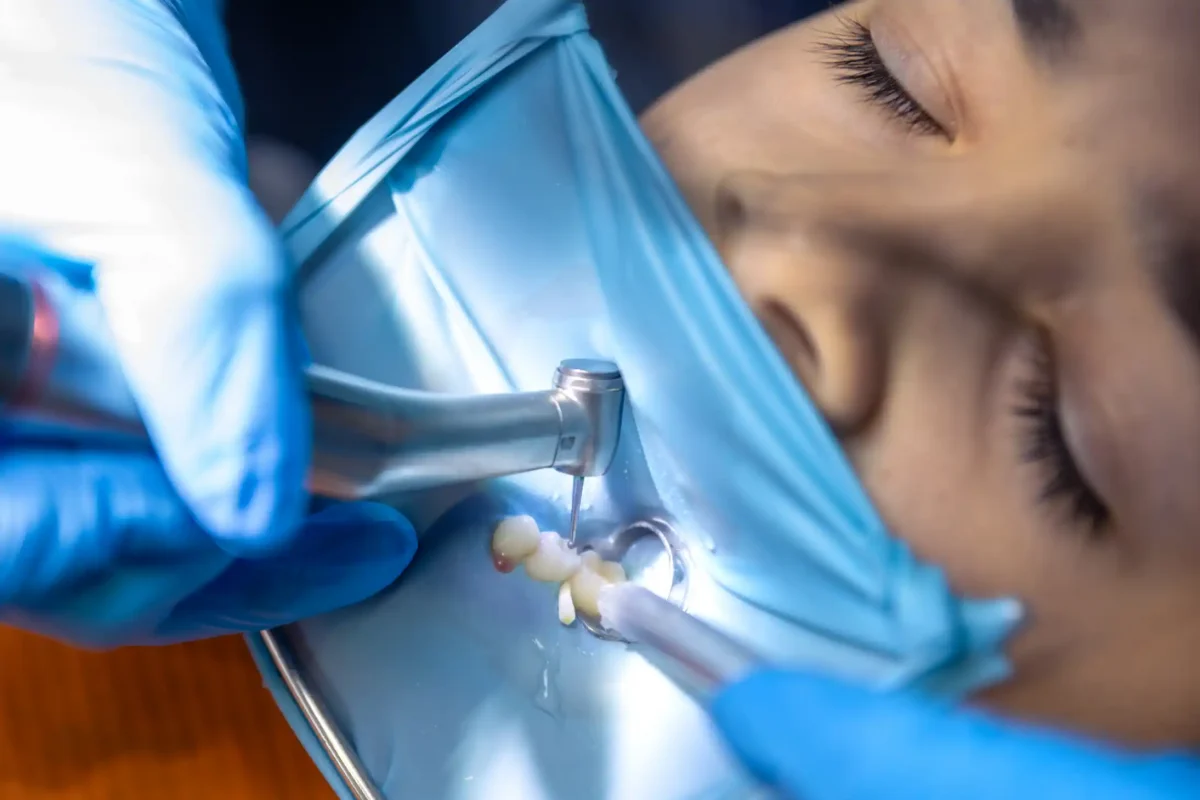
How Is Dental Plaque Removed?
Combining oral hygiene habits with routine professional dental cleanings is the best way to eliminate dental plaque.
You can take the following actions to aid in removing dental plaque:
Brush Your Teeth Twice Daily
Brush your teeth for two minutes using fluoride-containing toothpaste and a soft-bristled brush. Pay close attention to where plaque frequently accumulates, such as the gum line and the spaces between the teeth.
Floss Daily
Flossing helps eliminate plaque and food particles from between teeth and along the gum line that your toothbrush may miss. Make sure to floss thoroughly and gently.
Use an Antiseptic Mouthwash
Mouthwash can help destroy bacteria in your mouth and freshen your breath. Look for a fluoride-containing antiseptic mouthwash approved by the American Dental Association (ADA).
Avoid Sugary and Starchy Foods
Bacteria in your mouth feed on sugar and starches, which can contribute to plaque accumulation. Therefore, limit your consumption of starchy and sugary foods to help avoid plaque development.
Have Routine Dental Exams and Cleanings
Professional cleanings can help remove plaque and tartar buildup that is difficult to remove with just brushing and flossing. Additionally, your dentist can look for indications of oral health problems like gum disease.
If you have a lot of plaque accumulation, your dentist may recommend a deep cleaning technique known as scaling and root planing. This entails eliminating plaque and tartar from the teeth’s surface and beneath the gum line to help prevent gum disease.
Following these steps and practicing proper oral hygiene can lower your risk of dental plaque and preserve good oral health. Call us at Zara Dental if you live in Houston, Texas, and have any questions about dental plaques or other dental issues!




